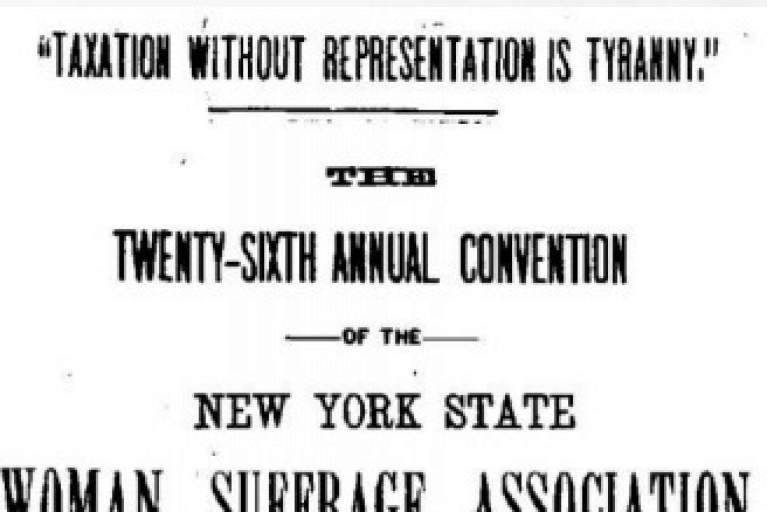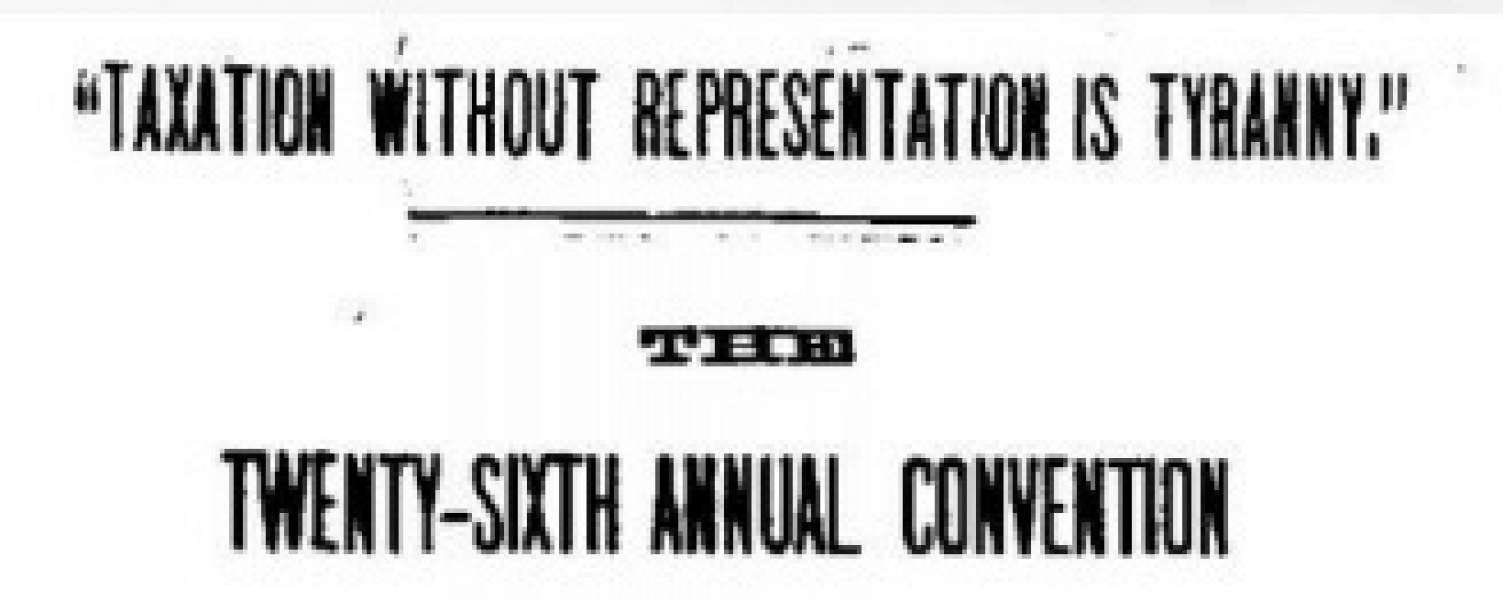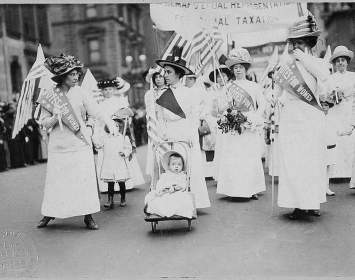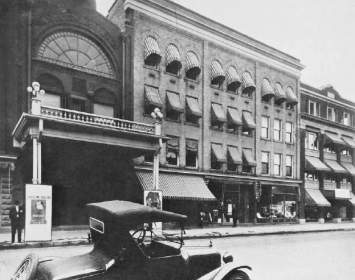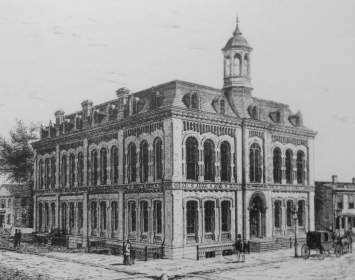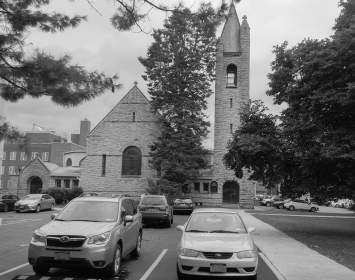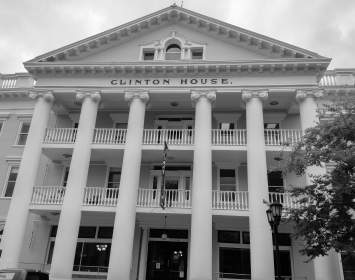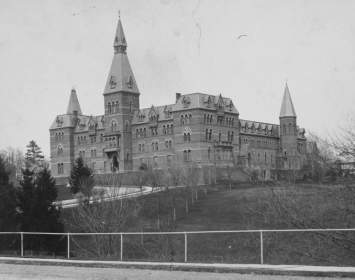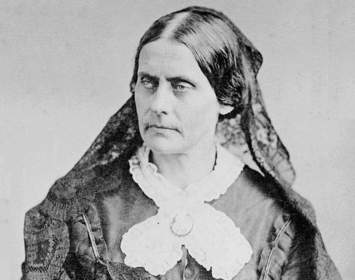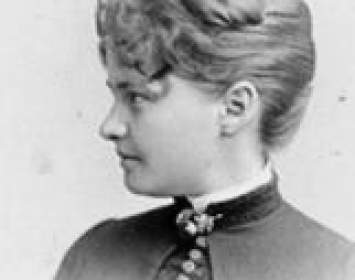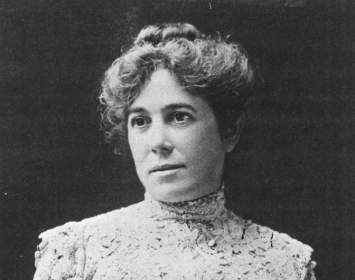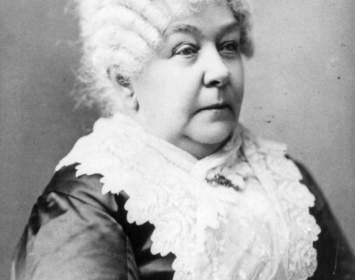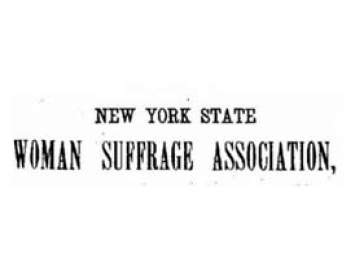The twenty-sixth annual convention of the New York State Woman’s Suffrage Association (NYSWSA) was held in Ithaca on Monday through Friday, November 12–16, 1894. (Nineteenth-century practice was to use the singular, woman or woman's, when referring to women as a class; later practice was to use the plural, women or women's.) The Clinton House hotel served as the convention headquarters. Public meetings were held at the Lyceum Opera House and Library Hall.
The convention began with an evening session on Monday, November 12, held at the Lyceum. Speakers included Jacob Gould Schurman, president of Cornell University; Clinton D. Bouton, mayor of Ithaca; suffragist Jean Brooks Greenleaf of Rochester, president of NYSWSA; suffragist and minister Annis Ford Eastman of Elmira; and Carrie E. S. Twing of Westfield representing the New York Grange.
The sessions of Tuesday, November 13, began in Library Hall with Greenleaf presiding. After various parliamentary business, a letter from Elizabeth Cady Stanton, who was unable to attend, was read. (She had just turned seventy-nine.) There were various reports and a discussion of a closer alliance with the Women’s Christian Temperance Union (WCTU), followed by election of officers. Greenleaf was re-elected president. Harriet May Mills was elected recording secretary, with Isabel Howland elected corresponding secretary. In the evening, prominent suffragist Lillie Devereux Blake spoke about New York's recent constitutional convention, which had refused a NYSWSA petition requesting a change to the state constitution so that women could vote. Suffragist Elizabeth Burrill Curtis spoke. Susan B. Anthony delivered the evening's major address to a standing-room-only crowd.
The sessions of Wednesday, November 14, took place at the Lyceum. A resolution was passed to petition the state legislature to pass a woman suffrage amendment—the next logical possibility after the constitutional convention declined to enact suffrage. Wednesday evening's speakers included the suffragist Annie E. P. Searing; suffragist and minister Anna Howard Shaw; and, in a return engagement, Carrie E. S. Twing.
On Thursday, November 15, county reports were concluded. Mary Stafford Anthony (sister of Susan B. Anthony) was honored for her service to NYSWSA. Blake presented the resolutions developed by the resolutions committee, all but one of which were adopted by the full convention.
That concluded the annual convention's public business.
Conclusion and Misadventure at the Clinton House. On the morning of Friday, November 16, the Executive Board met at the Clinton House with thirteen members attending. Syracuse suffrage activist Mills was declared the State Lecturer and Organizer, a position that included a salary and expenses.
With the conclusion of this meeting, NYSWSA's twenty-sixth annual convention came to a close.
The Clinton House was presumably the location for a bit of post-event drama that shaped the future of suffrage activism in Ithaca and may have encouraged a common error in historical descriptions of the 1894 Convention.
To understand its context, hold in mind that six months prior to the Convention, on March 27–29, 1894, a local suffrage activist group—the Tompkins County Political Equality League—held a meeting at Ithaca's Library Hall and Dewitt Park Baptist Church to promote collection of signatures for the previously mentioned petition to the state constitutional convention. Though a county-level meeting, it welcomed two prestigious national speakers: Susan B. Anthony and Anna Howard Shaw. Though the petition campaign was unsuccessful—the constitutional convention respectfully considered, but ultimately rejected, the petition's request to open the vote to New York women—the League and its chair, Carrie E. Bouton (the wife of Ithaca's mayor), distinguished themselves by their work at the March meeting.
The League was somewhat unusual in that it was independent; it had not formally organized itself as an NYSWSA affiliate, as many local and regional suffrage groups had in New York.
With this context now established, fast-forward to November 16, immediately after the Executive Committee meeting at the Clinton House that closed the November NYSWSA convention. Susan B. Anthony engaged League Chair Carrie Bouton and two other women in urgent conversation. The topic: bringing the League, at long last, into formal affiliation with the NYSWSA.
One of the other two women taking part in that conversation was Louisa Riley. She and her husband were newcomers to Ithaca, having moved to town only after the March meeting to be near their son, who was attending Cornell. One historical source describes her as "disappointed that there wasn’t a suffrage organization in town," suggesting she was unaware that the League existed. Abruptly, Riley piped up in favor of founding a new, general-interest woman’s club that would combine social functions with a limited amount of suffrage work. Ill-considered as it may have been, Riley’s proposal got traction. An Ithaca Woman's Club was formed. Suffrage work was confined to its Equal Suffrage Section, which would program every fourth meeting of the Club. Presumably, Anthony was frustrated by this turn of events. Nonetheless, it was this mere section of the Woman's Club—and not the League—that affiliated itself with the NYSWSA. Effectively sidelined, the Tompkins County Political Equality League remained independent and is little heard-of afterward.
This misadventure, if such it may be called, had two major implications. First, after the November convention, suffrage work in Ithaca largely depended on a general-interest woman's club whose broad agenda arguably rendered it less focused—hence, less effective—than the League, a single-issue suffrage organization, had been. Second, the League's effective sidelining encouraged its gradual effacement from the historical record despite its intense activity only months before the November convention.
In consequence, the March 1894 meeting organized by the League appears little known to historians. Accounts of the November convention frequently describe it as remarkable, in that a town as small and remote as Ithaca would be chosen to host the 1894 convention despite the lack of any local suffrage organization on the ground! This claim makes sense only if one is wholly unaware that the Tompkins County Political Equality League existed and was once vibrantly active.
But for Louise Riley's ill-timed suggestion at that Clinton House post-meeting gathering, Ithaca suffrage history might have turned out very differently.
Thanks to Carol Kammen, Elaine Engst, Patricia Longoria, and Timothy Binga for research assistance.
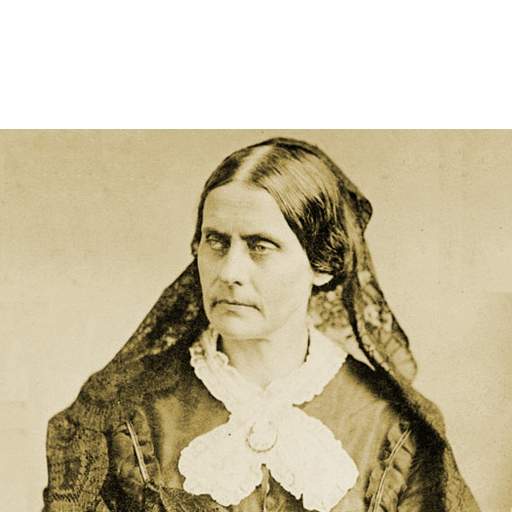
Susan B. Anthony
Susan B. Anthony.
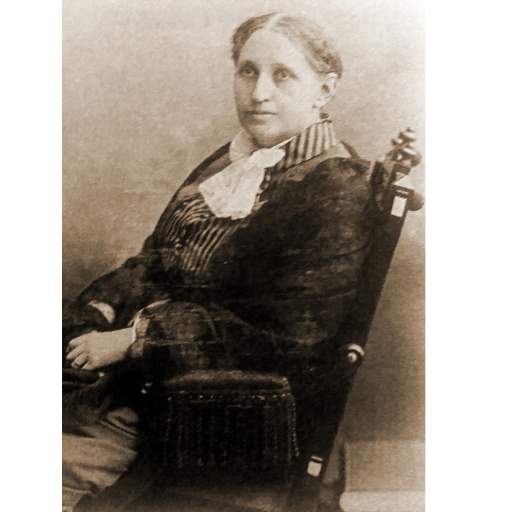
Jean Brooks Greenleaf
Jean Brooks Greenleaf.
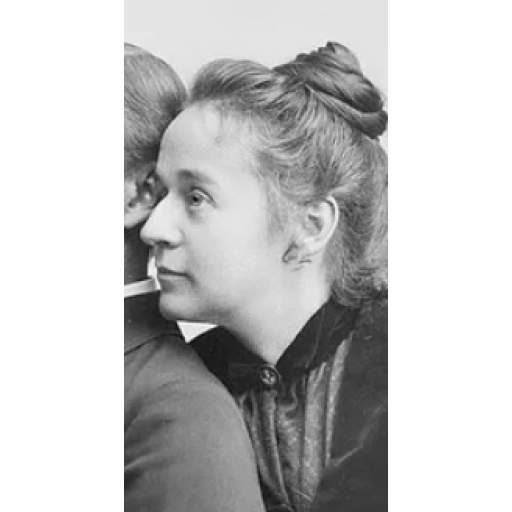
Annis Ford Eastman
Annis Ford Eastman.
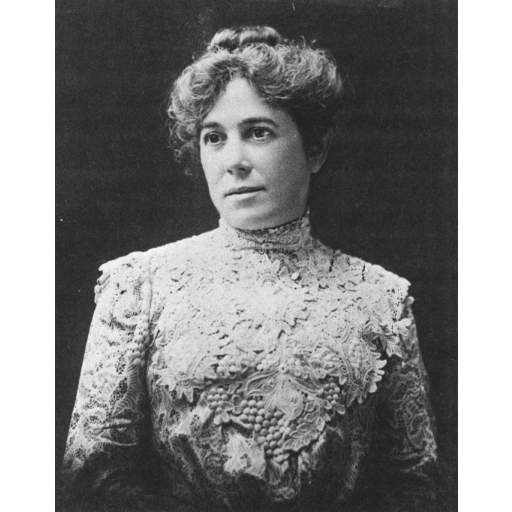
Harriet May Mills
Harriet May Mills.
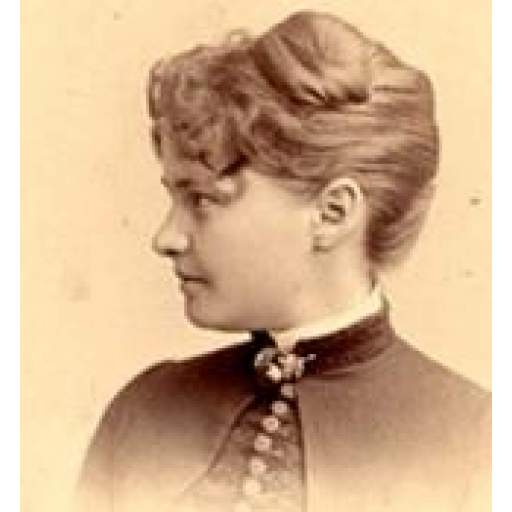
Isabel Howland
Isabel Howland.
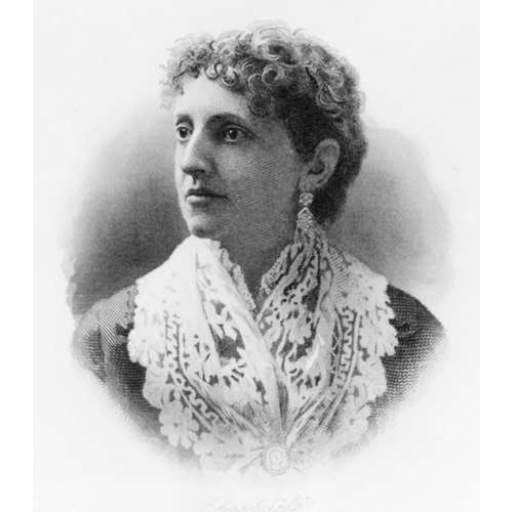
Lillie Devereux Blake
Lillie Devereux Blake.
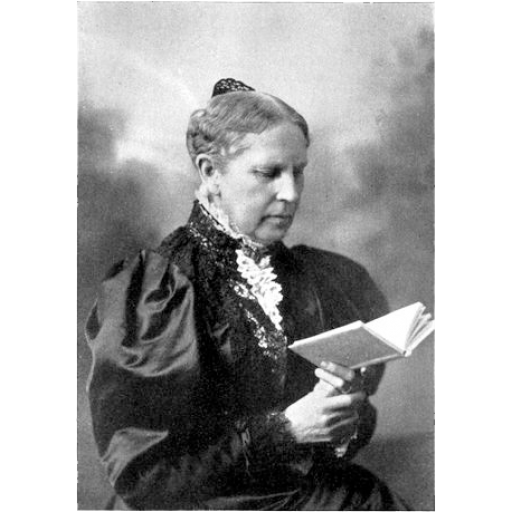
Mary Stafford Anthony
Mary Stafford Anthony.
